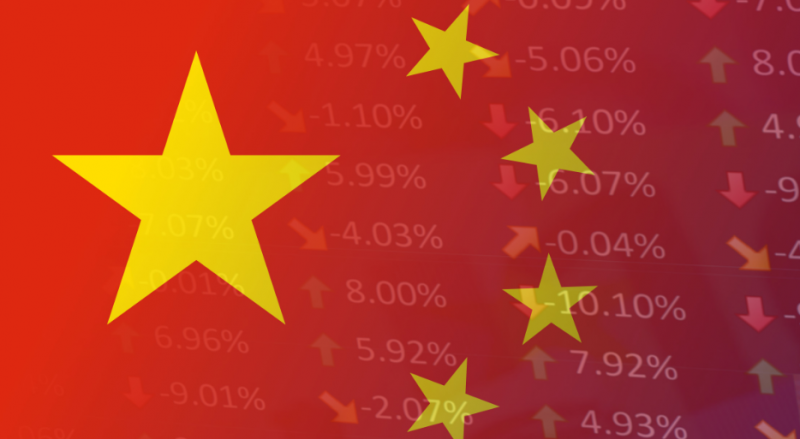by Ning Meng, China A-Share Strategy Leader , and Alan Yip, Head of Portfolio Solutions - Asia Pacific, Neuberger Berman
China’s regulatory reforms may be disruptive in the short term, but we see long-term positives.
Today’s CIO Weekly Perspectives comes from guest contributors Ning Meng and Alan Yip.
When it comes to China equities, many international investors feel like the rules of the game have changed over recent weeks.
They face a sudden rush of difficult-to-assess reforms with far-reaching implications for a range of sectors, from data-heavy technology to education, real estate and on-demand food delivery.
In addition, their historically favored route into the market—the American Depositary Receipts (ADRs) representing foreign companies’ shares listed on U.S. exchanges—is under threat not only from domestic Chinese regulation, but from U.S. action as well.
We think China remains an attractive market, but in our view, recent developments make the case for going direct, via H- and especially A-Shares, stronger than ever.
Harder to List
ADR investors’ concerns were raised early in July, with the issuance of “Advice on the Crackdown on Illicit Securities Activities by Law” by the General Office of the Communist Party of China Central Committee and the State Council.
While most of it concerns reforms to domestic judicial systems and securities law enforcement over the next four years, proposals on tightening cross-border data flow and potentially requiring domestic regulatory approval for offshore listings are, in our view, a threat to ADRs.
Furthermore, its proposals to “strengthen international securities law enforcement,” “actively participate in enhancing international capital market governance,” and deepen cross-border audit supervision cooperation all dovetail seamlessly with U.S. legislation enacted under President Trump last December, the Holding Foreign Companies Accountable Act (HFCA Act).
The HFCA Act requires the U.S. securities regulator to identify any companies that it is unable to “inspect or investigate completely because of a position taken by an authority in a foreign jurisdiction”; requires documentary proof that they are not owned or controlled by a foreign government entity as well as certain other disclosures; and prohibits trading of their securities after three years of non-inspection.
In a world in which U.S. and Chinese authorities are increasingly at odds, we view this co-operative stance as notable. For the U.S., this is about enhancing the transparency and security of its markets. For China, it is about encouraging domestic listings by making it harder to list elsewhere.
The likely loser is the ADR market—and particularly the ADR market in data-dependent technology firms and those operating in sectors where foreign ownership tends to be restricted. ADRs already account for less than 10% of annual Chinese IPO capital-raising, and that now seems likely to decline further and faster.
Concentration
While we invest in ADRs on a case-by-case basis, we have long argued that they are a poor substitute for broad China equity exposure via H- and especially onshore A-Shares.
The ADR market accounts for only around one-sixth of overall China equity market capitalization. They also tend to be issued by larger companies: ADRs represent less than 4% of the total number of listed Chinese entities, according to Wind, the Chinese market data provider. They are also disproportionately tech-focused: 46% of the S&P/BNY Mellon China Select ADR Index, for example, is technology stocks. Another 32% is made up of consumer stocks.
This level of concentration was always problematic, in our view, and it is still more so now that the technology sector faces tightening regulation under China’s new Data Security, Cyber Security and Personal Information Protection Laws. Ongoing ADR de-listing is also likely to diminish liquidity in individual names and the market as a whole.
Globally Competitive
By contrast, we believe the current reforms are a long-term positive for the A-Share market.
We believe onshore markets would benefit from the likely “homecoming” of market capitalization and liquidity that is currently located offshore. The “Advice on the Crackdown on Illicit Securities Activities by Law” is an important step forward in enhancing the transparency and stability of China’s financial markets.
And at a deeper level, even the regulatory reforms causing so much volatility in certain sectors are good for China’s long-term economic prospects, in our view.
There will likely be losers: the ban on education companies earning profits brings much more risk than reward. But there may also be winners: the focus on data security in the technology sector, transparency and best practices in the property management sector, and fair employment terms in the on-demand food delivery sector can create opportunities for high-quality businesses.
This twin focus on financial market efficiency and social fairness is likely to cause more volatility in the short term. Ultimately, however, it is designed to align with China’s political environment, population growth target and foreign policy aims, and to make its industries more globally competitive.















